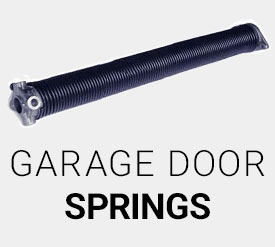Adding a garage isn’t usually the first thing people think of when they’re looking to bump up their home’s value. Most go for the kitchen, maybe redo a bathroom, or slap on some new paint. But in plenty of cases, especially if you're lacking one entirely, a garage can be the upgrade that shifts how people see—and price—your property.
It’s especially relevant in dense, high-demand areas. If you’re exploring options for home remodeling in Santa Monica, a garage isn’t just a perk. It could be the feature that makes your home stand out from others on the block, or even makes it sellable at all. Street parking gets tight, weather can be rough on vehicles, and having that extra square footage—even if it’s not traditional living space—counts.
It’s Not Just About the Car
We call it a garage, but what people really want is usable space. Sure, some owners want a spot to keep their car out of the sun, but for others, it’s about creating a place for tools, bikes, a home gym, or a laundry setup that isn’t crammed into the kitchen.
Buyers pick up on that. It’s not just about value in dollars—though that matters—but about how the space changes how they can live. More storage, more privacy, maybe even room for a workshop. These things quietly raise a property’s appeal.
What Buyers Think When They Don’t See One
When there’s no garage—or not even a decent carport—some buyers hesitate. They start asking, “Where would I put my stuff?” or “Where does laundry go?” It raises friction during a sale. Even folks who say they’re fine without one tend to soften when they see a clean, functional garage in another listing.
So while it might not raise your home’s appraised value by $100K overnight, it can make your home easier to sell. And in certain price ranges, that’s worth a lot.
Attached or Detached?
Each comes with pros and cons. An attached garage is easier to access, and often more affordable to build. You’re using an existing wall and likely tying into the roofline, so you’re not starting from scratch. It’s great for colder months or rainy days when you don’t want to run across the yard with groceries.
Detached garages give you more freedom in layout. You can build toward the back of the lot, maybe add a second story, or plan for an accessory unit later on. They're also quieter, and better if you don’t want garage smells or noise bleeding into the house.
Which works best really depends on your lot size, layout, and whether you're thinking short-term resale or long-term use.
Does It Actually Add Value?
Most data points to a return of 60–80% of the build cost. That varies based on where you live, of course, and what buyers are used to seeing in your area.
In places with limited off-street parking, the value tends to be higher. Add insulation, electricity, and solid finishes, and it starts looking less like a car box and more like a bonus room. Appraisers won’t count it the same way they would livable square footage, but it still moves the needle.
Final Take
Not every home needs a garage—but if you’re constantly running out of space or struggling with street parking, it’s probably worth considering. And if your neighbors already have them? You might be playing catch-up whether you realize it or not.
As far as remodels go, it’s a practical one. You’re not chasing trends. You’re solving a problem. And whether you’re staying for the long haul or prepping to sell, that kind of upgrade rarely goes to waste.





